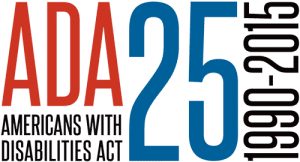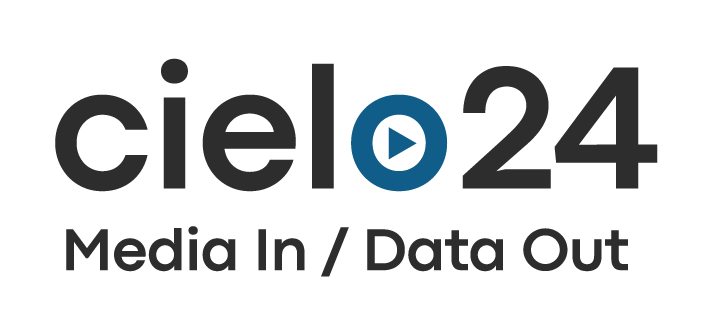Get up to date on Texas state accessibility and caption law and requirements! Welcome to…
Public and Private University Accessibility Law
Public and private university accessibility law explained.
Both public and private educational institutions must provide equal access for students with disabilities. While it may seem obvious which laws and statutes public universities need to comply with, it is not always as easy to understand accessibility accommodations that apply to private universities.
To further add fuel to the proverbial fire, accessibility requirements are currently being revised and defined as we find ourselves addressing worldwide demand on accessibility issues arising in response to rapid technological growth in education. However, there are many laws and statutes that currently affect our educational institutions throughout the United States.
The Americans with Disabilities Act and the Rehabilitation Act are broad accessibility mandates that apply to both private and public educational institutions at all levels.
1. The Americans with Disabilities Act
The Americans with Disabilities Act is civil rights legislation that prohibits discrimination and ensures equal opportunity for persons with disabilities in employment, state and local government services, public accommodations, commercial facilities, and transportation. There are provisions of the ADA that directly affect higher education.
The Americans with Disability Act defines how it assess public and private education.

- Title II of the ADA covers publicly-funded universities, community colleges, and vocational schools.
- Title III of the ADA covers privately-funded schools.
Who does the Title II of the ADA apply to?
The title II regulation covers what is broadly deemed “public entities”, as follows:
Public entities include any and all state or local government and any of its departments, agencies, or other instrumentalities whether or not they receive federal funding.
Specifically, Title II applies to all public universities whereas Title III applies to private universities.
Overview of Title II Requirements
State and local governments —
- May not refuse to allow a person with a disability to participate in a service, program, or activity simply because the person has a disability.
- For example, a city may not refuse to allow a person with epilepsy to use parks and recreational facilities.
- Must eliminate unnecessary eligibility standards or rules that deny individuals with disabilities an equal opportunity to enjoy their services, programs or activities unless “necessary” for the provisions of the service, program or activity.
- Requirements that tend to screen out individuals with disabilities, such as requiring a driver’s license as the only acceptable means of identification, are also prohibited. Safety requirements that are necessary for the safe operation of the program in question, such as requirements for eligibility for drivers’ licenses, may be imposed if they are based on actual risks and not on mere speculation, stereotypes, or generalizations about individuals with disabilities.
- Are required to make reasonable modifications in policies, practices, and procedures that deny equal access to individuals with disabilities, unless a fundamental alteration in the program would result.
- For example, a city office building would be required to make an exception to a rule prohibiting animals in public areas in order to admit guide dogs and other service animals assisting individuals with disabilities.
- Must furnish auxiliary aids and services when necessary to ensure effective communication, unless an undue burden or fundamental alteration would result.
- May provide special benefits, beyond those required by the regulation, to individuals with disabilities.
- May not place special charges on individuals with disabilities to cover the costs of measures necessary to ensure nondiscriminatory treatment, such as making modifications required to provide program accessibility or providing qualified interpreters.
- Shall operate their programs so that, when viewed in their entirety, they are readily accessible to and usable by individuals with disabilities.
Who does the Title III of the ADA apply to?
While Title II is straight forward, Title III requires a bit more attention to detail. The law states that:
No individual shall be discriminated against on the basis of disability in the full and equal enjoyment of the goods, services, facilities, privileges, advantages, or accommodations of any place of public accommodation by any private entity who owns, leases (or leases to), or operates a place of public accommodation”
The title III regulation applies the following definitions:
- Public accommodations
- Commercial facilities
- Private entities that offer certain examinations and courses related to educational and occupational certification.
Places of public accommodation include private establishments, such as restaurants, hotels, theaters, convention centers, shopping centers, doctors’ offices, hospitals, libraries, parks, amusement parks, private schools, day care centers and many more.
Looking more carefully you will notice that Title III covers private universities in the 3rd defined segment above. And it is under the Title III of The ADA that Harvard and MIT were recently sued. In the lawsuit, the private universities allegedly discriminated against the deaf and hearing-impaired students for lack of educational video captioning.
The lawsuit went further to say the universities violated the ADA specifically by not only ignoring captioned media by producing poor quality content leaving students at a disadvantage in learning outcome.
The lawsuits have spurred the dialogue on accessibility at all levels of education and sectors of government agencies. In 2007, the research non-profit, International Association for K-12 Online Learning created a policy that “Audio materials should either include a transcript or be captioned to accommodate users with auditory handicaps.”
Overview of Title III Requirements
- Public accommodations must:
- Provide goods and services in an integrated setting, unless separate or different measures are necessary to ensure equal opportunity.
- Eliminate unnecessary eligibility standards or rules that deny individuals with disabilities an equal opportunity to enjoy the goods and services of a place of public accommodation.
- Make reasonable modifications in policies, practices, and procedures that deny equal access to individuals with disabilities, unless a fundamental alteration would result in the nature of the goods and services provided.
- Furnish auxiliary aids when necessary to ensure effective communication, unless an undue burden or fundamental alteration would result.
- Remove architectural and structural communication barriers in existing facilities where readily achievable.
- Provide readily achievable alternative measures when removal of barriers is not readily achievable.
- Provide equivalent transportation services and purchase accessible vehicles in certain circumstances.
- Maintain accessible features of facilities and equipment.
- Design and construct new facilities and, when undertaking alterations, alter existing facilities in accordance with the Americans with Disabilities Act Accessibility Guidelines issued by the Architectural and Transportation Barriers Compliance Board and incorporated in the final Department of Justice title III regulation.
- A public accommodation is not required to provide personal devices such as wheelchairs; individually prescribed devices (e.g., prescription eyeglasses or hearing aids); or services of a personal nature including assistance in eating, toileting, or dressing.
- A public accommodation may not discriminate against an individual or entity because of the known disability of a person with whom the person or entity is known to associate.
- Commercial facilities are only subject to the requirement that new construction and alterations conform to the ADA Accessibility Guidelines. The other requirements applicable to public accommodations listed above do not apply to commercial facilities.
- Private entities offering certain examinations or courses (i.e., those related to applications, licensing, certification, or credentialing for secondary or postsecondary education, professional, or trade purposes) must offer them in an accessible place and manner or offer alternative accessible arrangements.
2. Section 504 of the Rehabilitation Act
Beyond the ADA, another important law to consider is that of the Rehabilitation Act, Section 504. Section 504 States that:
- All public or private schools that receive federal funding are required under Section 504 of the Rehabilitation Act to make their programs accessible to students with disabilities.
- All the programs of public or private schools, including extracurricular activities, must be accessible to students with disabilities.

Digging in a little deeper, it becomes evident that lines between public and private educational institutions tend to blur. One could easily make the argument that both public and private higher education as defined by the institutions themselves, serve the ‘public good’, however, what is more tangible and binding is the issue of funding.
The fundamental differentiation of private universities, as being defined by receiving private funding only, this is often inaccurate. In the United States, private universities, receive various forms of public funding. Further, the ‘gifts’ that construct their endowment coffers are a public tax exemption. Also, the federal government provides extensive tax-supported financial aid to private institutions to subsidize enrollment costs. Private universities in many states receive a ‘per-student’ subsidy for every in-state student they enlist.
Another major area of private institution funding is often made to research designated universities, which receive healthy federal grants and contracts. In the same way, private universities also capitalize on states funds to invest in economic development activities that support their academic initiatives.
Conclusion
A greater examination of Section 504 of the Rehabilitation Act distinguishes that private universities are responsible for upholding these mandates. It is equally clear that Title III of the ADA has been applied to private universities in recent landmark lawsuits.
While the activity and the lawsuits surrounding the accessibility landscape are evolving; what is clear, is that accessibility accommodation is becoming a necessity. Having a plan now rather than waiting to address these concerns until it is too late is the best option for all industries. To better assist your accessibility efforts download the Comparison of Major Disability Rights Statutes.
Have more questions on public and private university law, sign up for our newsletter.



